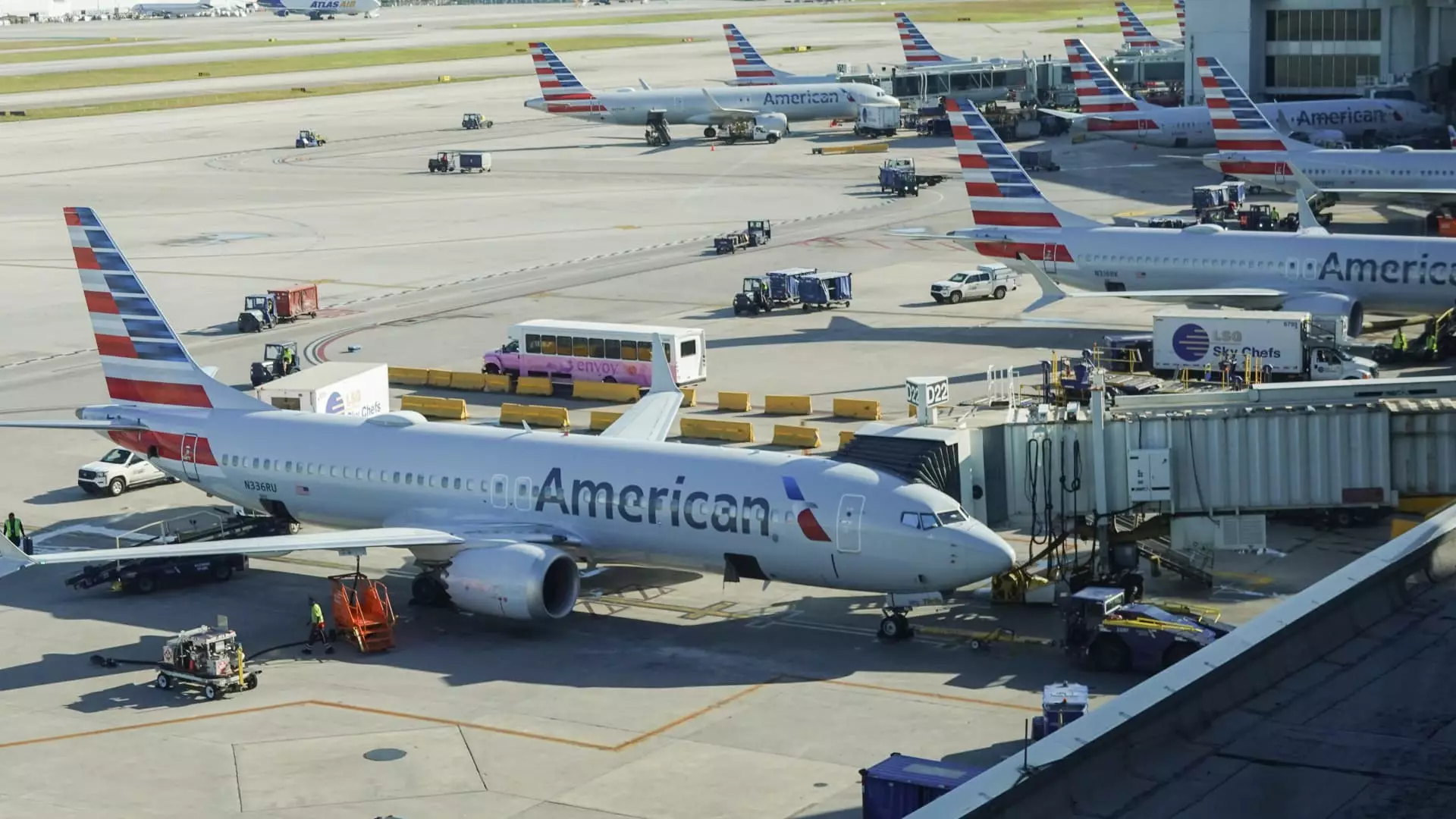On a Tuesday morning, American Airlines faced a brief moment of operational turmoil when it had to ground its U.S. flights due to a technical issue. This disruption occurred during a peak travel season, as airlines prepared for what is anticipated to be record-breaking demand from holiday travelers. Although the ground stop lasted less than an hour and was resolved swiftly, it highlighted the fragility of airline operations and the significant impact of technology on air travel.
The root of the problem was identified as a failure in a vendor-provided platform, which manages integral data pertaining to the aircraft’s weight and balance. This information is vital, as it must be accurately assessed before any flight can safely depart. American Airlines promptly lifted the ground stop at approximately 7:55 a.m. ET, allowing flights to resume. In a subsequent statement, the airline expressed their regret for the inconvenience caused to travelers, emphasizing the importance of resolving such technical issues rapidly to maintain operational continuity.
The temporary ground stop at American Airlines was not an isolated incident; such measures are routinely implemented across the aviation industry when disruptions occur. The Federal Aviation Administration (FAA) noted that American Airlines itself requested the ground halt to manage the situation effectively. Ground stops, while inconvenient for travelers, serve critical purposes. They prevent airports from becoming overcrowded with incoming flights when unforeseen complications arise, thus safeguarding against further chaos in flight operations.
This incident reignites concerns about the reliability of airline technology systems, especially following previous severe disruptions in the industry. For instance, Southwest Airlines faced an extensive operational meltdown during the 2022 holiday season, which garnered significant media attention and scrutiny. Similarly, Delta Airlines struggled with recovery issues following a cybersecurity incident this past summer. These high-profile failures underscore the pressing need for technological upgrades and a reevaluation of the systems that support airline operations, particularly in peak seasons when every minute counts.
Despite this hiccup, it’s noteworthy that American Airlines managed to operate a smaller schedule on Christmas Eve without any related cancellations. This incident serves as a reminder of the complexities involved in air travel and the delicate balance that airlines must maintain in providing safe and reliable service. As the holiday season approaches, the focus shifts back to ensuring that travel remains uninterrupted, but events like this highlight the potential vulnerabilities that could impact countless travelers during this busy period. Airlines must learn from such occurrences to bolster their operational resilience and enhance customer confidence in both routine travel and holiday journeys.

